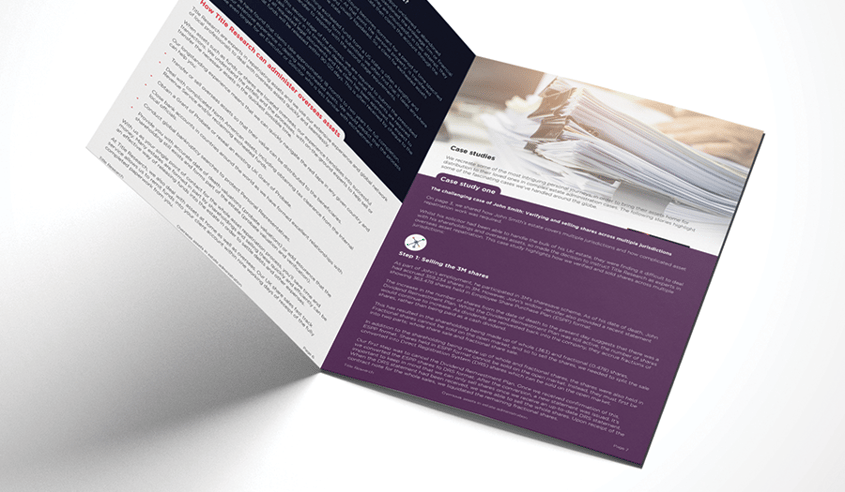Title Research can assist with the administration of US and Canadian shareholdings
If a US asset is considered dormant, which can take between 3-5 years, then it can escheat to a State Comptroller’s Office where it is liquidated and the resulting funds held on an unclaimed asset register.
A US asset can be considered dormant if no new activity is registered on an account. This can include no changes to account ownership or the registered address, no new investment e.g. through the purchase of additional shares , or when dividends remain uncashed.
If a US asset holder has deceased then it can be challenging to register activity on an account and as a result, escheatment can often occur. This is especially the case when the UK estate must first obtain tax clearance from the IRS, which can take over 2 years.
Escheatment can cause several challenges to UK estate practitioners as it can make valuing an asset difficult. Whilst asset companies can confirm when escheatment has occurred, they cannot confirm the value as it is the purview of the relevant state to liquidate an escheated asset at a time of its choosing. In addition, once liquidated, the original asset no longer exists and can no longer either depreciate or appreciate in value.
If escheatment does occur, Title Research can assist with reclaiming funds from the relevant state on behalf of the estate.
Fee estimate for reclaiming escheated funds
Related services
If you’re administering North American assets, you may also find these asset repatriation services useful.

Administering US & Canadian Shares
We deal with North American assets, plus we can administer overseas assets in most jurisdictions around the globe.

Medallion Signature Guarantees
We can support you with Medallion Signature Guarantees. We have a stamp with a bond limit of $500,000.
Quick response
Our dedicated team of experts are available Monday to Friday between 9am - 5pm to ensure a resolution is achieved smoothly and efficiently.
Related content
These useful resources aim to help you further understand how to overcome the pitfalls of dealing with North American assets.

Blog: What is escheatment? And why you should be aware of it
The process of escheatment often affects North American assets when an account has been dormant for some time. Learn why you should be aware of escheatment in this informative blog post.

Guide: Dealing with overseas assets in estate administration
Dealing with overseas assets can be complex as each country has different rules, forms and processes to navigate. This guide shares how to overcome the challenges associated with foreign assets.


